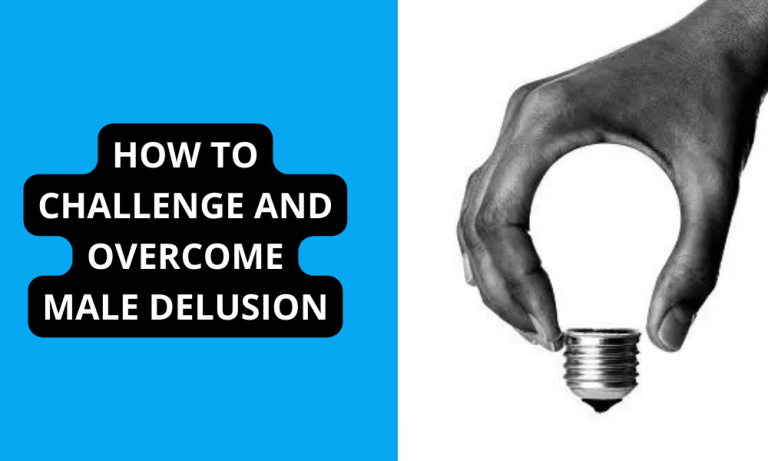How to Navigate Male Cognitive Traps?

Welcome, and thank you for your interest in understanding how to navigate male cognitive traps. As an expert in human cognition and behavior, I want to help empower you with knowledge that can improve your relationships and interactions.
The human brain is an amazing yet complex organ that is still not fully understood. Over millennia, evolution has shaped peculiar tendencies in how men and women think. In this post, I’ll discuss some common “cognitive traps” that can trip up male thought processes, as well as practical strategies you can use to navigate them successfully.
An Evolutionary “Why”
To start, it’s important to recognize the evolutionary forces that likely contribute to gendered cognitive differences. Some key factors include:
- Reproductive roles – Throughout history, the male role emphasized competing for access to mates through skills like hunting, fighting, and problem-solving. This directed neural development toward certain cognitive strengths.
- Parental investment – Females inherently invest more in offspring through pregnancy and nursing. This favored neural adaptations geared toward social skills, empathy, and complex communication for fostering relationships.
- Threat response – As protectors and providers historically responsible for defense, males evolved a hair-trigger reaction to potential threats, a tendency toward risk-taking, and superior spatial abilities.
Of course, these are broad generalizations, but acknowledging this evolutionary “why” behind traits gives us insight into how to work with rather than against natural male tendencies. The key is learning how to channel innate strengths productively while avoiding unconstructive mental habits. Try our Male Delusion Calculator to analyze your perceptions.
The Single-Track Male Mind
A hallmark of the male cognitive style is a tendency toward singe-task focus known as “monotonic thinking.” Where women often excel at multitasking, processing multiple streams of information simultaneously, the male brain hones in on one topic or task intensely.
This dedicated focus drives male success in domains requiring intense concentration like engineering, math, and competitive sports. However, it can also lead men to miss wider contextual factors or take a narrow view of problems.
The solution? Gently encourage perspective-taking when a man seems stuck in single-track thought. Ask open-ended questions to broaden his mental scope: “What other angles could we look at this from?” Break larger challenges into discrete chunks men can focus on sequentially. And recognize focused thinking as a strength to be leveraged, not a defect.
The Short-Term Spectrum
Evolution shaped male cognition to emphasize short-term needs and rewards. This helped ancestors survive demanding lives by prizing adequate nourishment, safety, and reproduction each day over hypothetical future gain.
The downside today is men sometimes undervalue lasting well-being, relationships, health, and financial security relative to momentary payoffs. Their outlook appears more present-focused.
To counterbalance, point out tangible long-term benefits men care about. Promote win-win cooperation over zero-sum competition. Initiate affection and enjoy shared experiences to strengthen the bond incentivizing future trust. With patience and consistency, expand his natural time horizon.
The Spatial-Mechanical Mind
Superior spatial intelligence and systemizing abilities gave ancestral males an edge in activities like hunting, tool-making, mechanics, map-reading, and engineering complex structures.
This cognitive framework still strongly shapes male interests, skills, and occupational choices. However, it can also hinder emotional comprehension. Some men struggle to get inside others’ feelings because personal interactions involve more complex social behaviors than mechanical systems.

Address this delicately by acknowledging his expertise in spatial-logical domains, then gently suggest also considering emotional “systems.” Provide clear examples of how attending to feelings leads to healthier relationships and cooperation. With practice and positive reinforcement, spatial strengths can pair productively with social awareness.
Trigger-Happy Competitiveness
Ancestral competition for resources and mates cultivated an ever-ready fight-or-flight response in males. This served our ancestors well but can spark unnecessary conflict if not properly channeled today.
Certain topics more easily “trigger” male competitive instincts like athletics, intellectual debates, video games, vacations spots or restaurants, and of course potential mates. Whenever possible, defuse tension by focusing discussions on shared interests instead of differences. Find playful ways to release competitive energy through friendly rivalry rather than hostility.
With self-awareness, men can recognize when pride or ego is crowding rational thought and choose to take a mental step back. Overall, emphasize cooperation through clear mutual understanding and benefits over adversarial clashes. A cooperative attitude fosters better outcomes for all.
The Concrete Thinker
Male thought tends to prize logic, facts, and quantifiable data over open-ended abstraction and subjectivity. This rigorous, results-oriented processing method drove evolutionary success through decisiveness, planning, and problem-solving.
However, it can overlook nuance, qualifiers, and sensitivities important to relationship building. When frustrations arise, men default to factual, cause-and-effect analysis rather than interpreting emotional subtext or seeing “shades of gray.”
To remedy, explicitly state feelings using “I feel” statements rather than indirect hints males may miss. Provide constructive feedback gently by first acknowledging efforts and positives, then suggesting areas for nuanced improvement. Discuss emotions through factual analogies, and help men express feelings concretely rather than vaguely. With practice interpreting more varied information, the male thinking style complements rather than clashes with emotional fluency.
The Rewiring Process
Any habit forming over millions of years requires dedicated effort to reshape. The key is nurturing self-awareness, recognizing innate tendencies compassionately, and finding willing partners for patient collaboration.
With ongoing care, attention, support and practice redirecting thought patterns through small constructive choices each day, cognitive “rewiring” occurs gradually. Though innate traits remain, their outward expression becomes a conscious choice aligned with health, balance and shared well-being.
Overall, these cognitive tendencies provide insight but not determinism. Each individual’s capabilities blossom uniquely based on lifelong experiences. The goal through respectful understanding is fostering each person’s fullest potential.
Dealing with Three Common Cognitive Traps
With this evolutionary and neurological context in mind, here are three specific male cognitive traps you can encounter and strategies to navigate them:
Trap #1: Tunnel Vision and Lack of Perspective
As mentioned, the single-track, short-term male mind can zero in narrowly without seeing the wider picture. This risks missing nuance, dismissing alternate views too quickly, or being blindsided later by overlooked factors.
Strategies:
- Ask open-ended questions to broaden thinking beyond the immediate topic or timeframe.
- Calmly highlight different valid perspectives he may not have considered yet.
- Suggest taking time to revisit assumptions and conclusions with a wider lens later.
- Help break larger issues into discrete sequential parts he can focus on step-by-step.
Trap #2: Overreliance on Logic over Emotion
Male concrete, factual cognition tends to privilege logic, reasoning and quantifiable analysis over subjective feelings and interpretations. This risks high-handed dismissal of sensitivities.
Strategies:
- Communicate feelings through precise “I feel” statements rather than hints.
- Provide rational analogies to help explain emotional experiences.
- Gently acknowledge his logical viewpoint while also validating your emotional truth.
- Suggest revisiting discussions with an empathic ear after emotions have calmed.
Trap #3: Impulsiveness and Short-Termism
The evolutionary male emphasis on short-term survival needs can spark impulsive decisions discounting long-term consequences. This risks dropping larger priorities for fleeting gratification.
Strategies:
- Point out specific tangible future benefits of patience, prudence or cooperation.
- Initiate affectionate bonding and shared experiences incentivizing the relationship.
- Calmly remind of prior thoughtful plans when impulses emerge.
- Suggest taking time before acting to re-center on mutual long-term priorities.
By understanding these biases and communicating respectfully yet directly, you can work with male cognition to achieve healthier, happier relationships and interactions navigating life’s challenges together. With openness on both sides, innate traits complement rather than clash.






